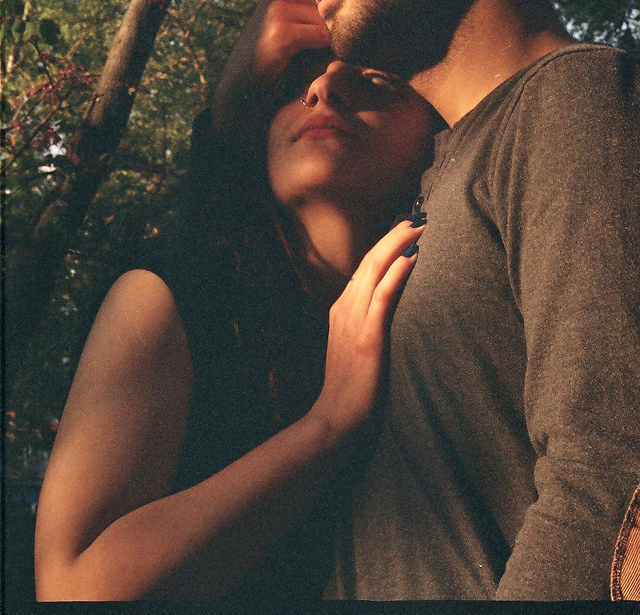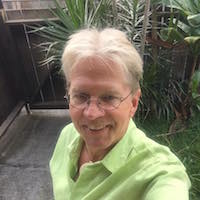What is dating, really?
Is it “conquest,” as I tried and failed to believe in high school, with dominance the winning strategy?
Is it “pursuit”—a kind of hunt—with guile and persistence for the win? Is it “contest,” with prospects vying against one another, with another person as the “prize?”
Or is it “audition” (the least offensive to me), with “only” artifice, pretense, deception and performance anxiety against it?
In high school I tried to be the conqueror, but I just couldn’t see a girl as an enemy to be bested. On the one or two occasions where I “won,” I felt awful.
Pursuit is worse—it seems to cast women as prey animals, less than human. I didn’t even try.
As for competition…on my worst day I’ve always been more a lover than a fighter. The idea of taking a prize by making myself seem bigger than I am or making another guy seem smaller just rubs me the wrong way. Because my heart wasn’t in it, my attempts were always half-hearted.
None of these metaphors worked for me and the metaphor matters—it shapes my perceptions, reactions and behavior.
Dating is hard. For the longest time I couldn’t get my head around it, really. I knew I wanted to make personal connections with women, but the customary approaches don’t suit my nature. Add shyness, introversion, social anxiety and lifelong self-loathing, and, well…I just didn’t date much.
In the last few years (and with the indispensable help of my friends), I’ve laid self-loathing to rest and begun to address social anxiety. I’ve come to embrace shyness and introversion as essential parts of “awesome me,” and to work with them in social settings. All the barriers that have kept me from dating have fallen—all save one—a model or metaphor for dating that makes sense to me.
If it isn’t conquest and it isn’t pursuit and it isn’t competition and it isn’t audition, what is it?
For me, dating is collaboration.
When two people date, the only meaningful goal is to discover together if they suit one another. It’s exploration—an adventure—and the two must work together to either find a treasure or learn that there isn’t one. They must come to know one another, learn to trust one another (or learn that they can’t), find the ways they do and don’t fit, and eventually decide either to proceed with a committed relationship or “to let it go.”
It works if both are honest and want to be known; it fails if either (or both) stoop to deception or manipulation.
People who date are working together: to know and to be known, to test themselves and each other, to make connections. Neither is trying to dominate, or to trick or fool the other. Neither is trying to “win.” Ideally, there’s no attachment to a particular outcome; each simply wants to find out what s/he might be to the other. They’re building a relationship, but not a particular relationship—they’re building the relationship that’s natural for them at the particular time they’re dating.
Maybe it’s friendship and maybe it’s only acquaintance. Maybe it’s romantic and maybe it’s platonic. Maybe it’s eternal and maybe it’s ephemeral. But it is what it is, and they’re just trying to discover what it is.
How is this working out for me, you might ask? (Go ahead! Ask!)
Well so far, it’s made rejection a lot more tolerable (still a very big deal!). Before, I took rejection so personally—when a woman said, “I’m not interested,” I took it to mean I wasn’t interesting. I felt like a failure when I didn’t “conquer” or “catch” or “win,” and It didn’t take many “failures” before I just stopped trying. Until quite recently, I hadn’t asked a woman out in years.
Armed with this new way of thinking about dating, I’ve begun to ask again.
I told a woman I really admire that I am interested in her. When she (gently!) rebuffed me, it only stung a little and mostly out of habit. I believe that our exchange was collaborative—we each learned something valuable about how we relate. It wasn’t so fraught, because I wasn’t so invested in a particular outcome as I was in knowing what we would be to one another. We remain friends.
I was so pleased with how that went—with the relative ease and comfort of it—that I asked again, this time someone who is barely an acquaintance. When she gently explained that she wasn’t romantically available, it was fine, almost good, because it told me something about her (and nothing I didn’t already know about me). And the way I responded told her something about me—that I don’t feel entitled, that I’d value her friendship. I hope we become friends.
This can be an empowering paradigm shift. It lifts the pressure. It lowers the stakes. What was once called “rejection” is now “discovery.” I can do this. I can feel good about this. I can be myself in this.
This is something to look forward to.
Relephant:
10 Signs you’re Dating an Emotionally Unavailable Man (or Woman).
~
Author: David Negaard
Editor: Catherine Monkman
Photo: Yagmur Adam/Flickr












Read 0 comments and reply